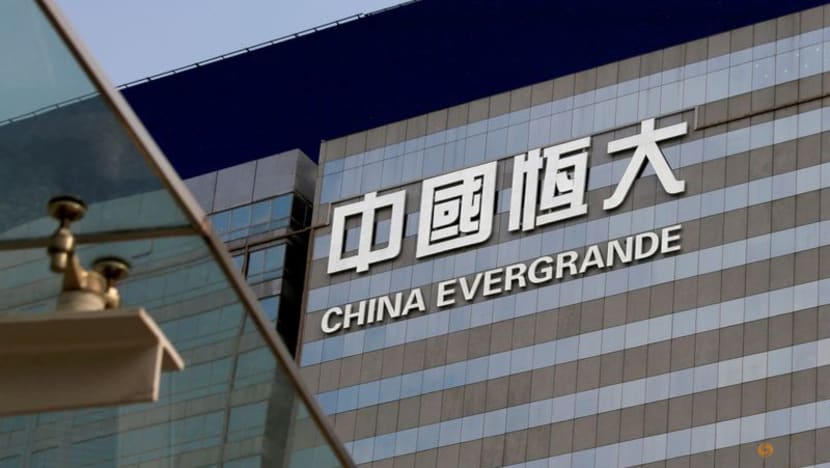
BEIJING: Embattled Chinese property giant Evergrande on Tuesday (Sep 14) conceded it is under “tremendous pressure”, a day after insisting it will avoid a bankruptcy that many fear could have a huge impact on the world’s number-two economy.
The Hong Kong-listed developer is sinking under a mountain of liabilities totalling more than US$300 billion after years of borrowing to fund rapid growth.
The group was downgraded by two credit rating agencies last week while its shares tumbled below their 2009 listing price, as a battery of bad headlines and speculation of its imminent collapse ran out across Chinese social media.
On Monday anxious investors protested at the Shenzhen headquarters of the sprawling conglomerate, as Evergrande said it is facing “unprecedented difficulties” but denied rumours that it is about to go under.
But on Tuesday the company issued another statement to the Hong Kong stock exchange, saying it had hired financial advisers to explore “all feasible solutions” to ease its cash crunch and warned that there was no guarantee it would meet its financial obligations.
The firm blamed “ongoing negative media reports” for damaging sales in the pivotal September period, “thereby resulting in the continuous deterioration of cash collection by the Group which would in turn place tremendous pressure on the Group’s cashflow and liquidity”.
Shares in the firm fell 9 per cent on Tuesday, and are down almost 80 per cent since the start of the year.
An estimate by Capital Economics says that Evergrande has about 1.4 million properties that it has committed to complete – about 1.3 trillion yuan (US$200 billion) in pre-sale liabilities, as of the end of June.
Some creditors have demanded immediate payback of loans, Bloomberg News reported earlier this month.
Its plight has raised fears of a contagion across the debt-laden Chinese property sector – which accounts for more than a quarter of the economy – with a knock on for banks and investors.
Evergrande has already sold stakes in some of its wide-ranging assets and offered steep discounts to offload apartments, but still reported a 29 per cent slide in profit for the first half of the year.
It is also struggling to sell its Hong Kong headquarters, even at a loss.
The developer was founded in 1996 by Xu Jiayin, who went on to become China’s richest man during the country’s property boom of the 1990s.
He poured money into mass developments in new cities, raising US$9 billion in its 2009 IPO in Hong Kong.
A year later Xu bought a struggling football team and renamed it Guangzhou Evergrande, lavishing millions of dollars on salaries for its stars and scooping titles.
Evergrande started to falter under the new “three red lines” imposed on developers in a state crackdown in August 2020 – forcing the group to offload properties at increasingly steep discounts.

Leave A Comment